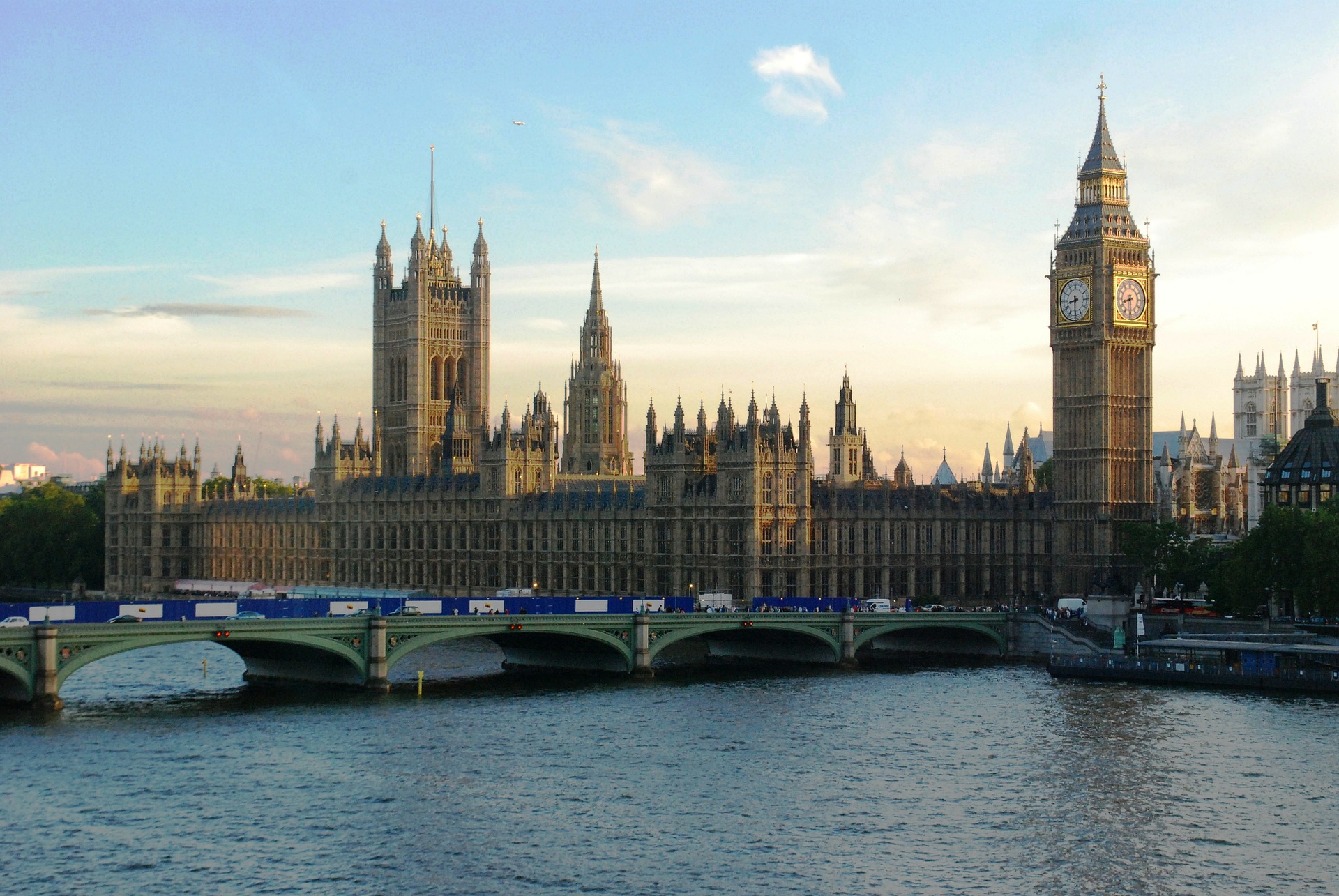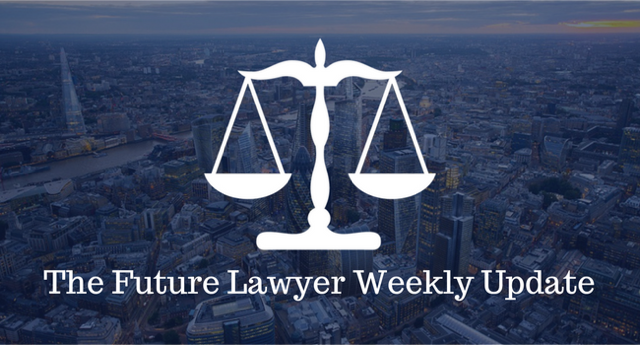
Clear the Lobby: What laws are MPs voting on this week (w/c 28th September)?
September 28, 2020
LVMH and Tiffany & Co: a match made in corporate heaven?
September 29, 2020The round-up of the stories that a budding Student Lawyer should be aware of this week. Sign up here to get these updates in your inbox every week.
Report: Covid-19 and Justice
Report finds pandemic having ‘severe’ effect on access to justice for the most vulnerable.
Reported by Jasmine Cracknell
The negative effect of the Coronavirus pandemic on vulnerable clients has been revealed in a report published by The Law Society last week.
The report ‘Law under lockdown’, draws attention to the problems faced by vulnerable people in trying to access justice and legal advice. The Law Society president Simon Davis said: “Those living in prisons, immigration detention or care settings, disabled people, children and victims of domestic abuse are particularly dependent on the state and have been disproportionately impacted by measures to contain the virus.”.
One of the key findings is the increase in the criminal court backlog by 26% since the start of the pandemic to the end of August. There are now 564,249 cases waiting to be heard. This means that those held on remand could be kept in custody for months longer than they otherwise would have been. One solicitor who responded to a Law Society’s survey said: “… my 14-year-old defendant’s trial [has been] moved from June 2020 to February 2021. He is currently detained in a secure detention centre and he will have been held on remand for over 14 months of his life by the time his trial has concluded […] This is likely to cause him all manner of issues for his social and personal development. If he is found not guilty then he will have served what would be a 2.5-year prison sentence without actually having committed a crime and that is totally unacceptable.”.
Those in other institutionalized settings, such as immigration detention centres and mental health facilities have also experienced more restrictive conditions since the pandemic began, which has limited their contact with their families and their legal representatives. Some solicitors say they have waited eight weeks to talk to their clients, with hearing dates being offered before they have even taken any instructions from the client.
The report also highlighted the adverse effects of remote hearings on vulnerable clients. Whilst video and audio hearings are now permitted under the Coronavirus Act 2020, such methods of communication are incredibly difficult for people who do not speak English, have mental health issues or who are disabled. The report found that only 16% of solicitors said their vulnerable clients could effectively participate in remote hearings. The Law Society says this indicates ‘an unacceptable barrier to justice for this group for a range of legal issues’.
The Society also emphasized the lack of legal advice available for people who are at threat of eviction, for whom housing advice is ‘essential’. Whilst legal aid is still available for those facing eviction or possession proceedings, the Law Society state the lack of legal aid providers are a cause for concern. With the stay on repossessions lifted earlier this month, these issues will no doubt become even more prevalent.
The Law Society’s report sets out a long list of recommendations to the Government based on is findings.
The key recommendations include:
- To adapt or remove measures not used, or used in a limited way, or which had inadvertent adverse effects.
- To protect access to justice and legal advice for those most at risk by investing in courts and technology to improve access to legal advice for those in institutional settings, addressing the backlog of cases in family, criminal and court of protection, providing non-means tested legal aid for those most at risk, such as victims of domestic abuse or those deprived of their liberty in health and care or immigration settings; and by ensuring courts continue functioning so cases are heard in a reasonable timeframe.
- To improve information, data collection and evaluation by allocating resources to the analysis of the data collected so that the impacts of Covid-19 can be better monitored.
Simon Davis, president of the Law Society, said: “Emergency measures must be necessary, proportionate and any limitations on access to justice must be for as short a time as possible, balancing the need to contain the virus with ensuring that those who need legal advice or the protection of the court can obtain it. [..] It is vital access to justice and legal advice are maintained during times of exceptional legal measures to ensure protection for those most at risk.”.
You can find out more here and here.
International Law
Overseas Operations (Service Personnel and Veterans) Bill: a breach of international law?
Reported by Katie Henderson
The government is attempting to pass a bill which would restrict the prosecution of British soldiers for torture or war crimes. This would apply to those who served in Iraq and Afghanistan. The bill was published for first reading in May following a party election pledge to protect soldiers from being unfairly pursued in the courts through “vexatious legal claims”.
It seeks to introduce a ‘triple lock’ of protection including; a five-year statute of limitations, a presumption against prosecution and the requirement for consent from the attorney general for any prosecution. This will heavily restrict legal proceedings being initiated for offenses that may have been committed more than five years prior.
Since 1948 torture has been prohibited under international law, protecting civilians against any potential breach from the state. However, it is argued that the bill explicitly contravenes the Geneva conventions of 1949 concerning humane behavior in war and also the UN convention against torture. Some even suggest the bill decriminalizes torture. It is widely understood that offenses of this nature can take years to investigate, or for a victim to even come forward; setting a deadline on such prosecutions could deny justice to individuals. The director of the Centre for Military Justice, Emma Norton, said she believed the bill was “on the face of it” a breach of the UK’s obligations of the EU Convention on Human Rights.
Specifically, the breach would arise under articles 2 and 3, which ensure the right to life and protect from torture/inhumane treatment. Norton goes on to say: “Where there are credible allegations of torture, crimes against humanity or unlawful killing, there is an obligation on the state to properly and openly investigate. The concern is that this bill gives government the power to block investigations as long as five years have passed”.
In August, the UK defense secretary Ben Wallace was ordered by court to explain why the government had withheld evidence concerning the execution of 33 civilians in Afghanistan 2011 (it was suggested this was committed by SAS soldiers). Although they were further investigated, prosecutions were not brought. This perhaps sets a worrying precedent for any future criminal prosecutions concerning armed forces personnel.
The most recent opposition comes from the former Conservative defense secretary Sir Malcolm Rifkind who has said that the bill risks “undermining the UK’s position as a champion for the rule of law”. He stresses the risk of creating a two-tiered system in which military personnel are favored in the law, going against values of the UK constitution. He comments; “Even if such derogations are introduced in a minor way for relatively good reasons it risks undermining the UK’s position as a champion for the rule of law. That makes it harder to rebuke countries like China for breaking the Hong Kong treaty”. Alongside Rifkind, Dominic Grieve (former Attorney General) and Lord Guthrie (former chief of defense staff) have signed a letter to the Prime Minister opposing the legislation and urging the government to instead use “existing protocols to remove the risk of vexatious prosecution”.
Government ministers contest the argument that the bill ‘blocks investigations’ by ensuring that criminal prosecutions will be considered where new evidence emerges. Despite this claim, there has been pressure from some Conservative backbenchers to halt prosecutions of veterans. Although the government’s main rationale for the bill is to deter vexatious claims, Dominic Grieve suggested that it may in fact do the opposite and increase complex legal proceedings. A Ministry of Defense spokesperson said: “This vital piece of legislation will protect military personnel and veterans from vexatious claims and the cycle of re-investigations into alleged offenses. The measures in the Bill will not erode the rule of law or prevent the MoD from being held to account for wrongdoing”.
With a Conservative majority of 80, it is likely that the bill will be passed successfully through the House of Commons, despite some of its controversies.
Human Rights
Chinese Uighurs: a possible right to petition British courts.
Reported by Emma Ducroix
Uighurs and other Muslim minorities would be given the right to petition a UK high court judge to declare that genocide is taking place in China. This right would require the UK government to curtail trade ties with Beijing, under proposals brought by MPs and peers who aim to grant minorities in China the right to petition British courts.The moves are being led by the former cabinet minister Iain Duncan Smith but have broad cross-party support.
Under the proposals, human rights campaigners would, for the first time, be able to seek redress in the UK courts for cases of alleged genocide, instead of the issue being determined at the UN, where deep political divisions mean those committing war crimes can in effect act with impunity.
The cross-party parliamentary revolt is causing deep concern in government, where there are fears that judges and human rights campaigners could be empowered to throw UK-China trade relations into turmoil. The breadth of the revolt also reflects the pressure on the government to use its economic levers to take a tougher line towards China in the wake of the national security law in Hong Kong introduced in the summer.
Duncan Smith said: “The government has still not got it on human rights in China, because of its size and influence at the UN. It is time we stood up against the abuses under way within China.”.
The UK parliamentary pro-Uighur alliance is proposing that no trade bill regulations be allowed to come into effect if a high court judge makes a preliminary determination that a party to the relevant trade agreement is committing genocide. An amendment to the trade bill is expected to be passed in the Lords, and Duncan Smith said he would pick up the issue in the Commons, where he expects the support of more than 40 Tory rebels, enough to defeat the government.
The measure has the backing of an array of peers including the cross-bench human rights campaigner, David Alton and the former head of the No 10 policy unit under Tony Blair, Andrew Adonis.
Legal figures in the Lords are also backing the move. Some senior judges feel their credibility was damaged when they assured peers last year that the presence of British judges on the Hong Kong courts would act as a restraint on China. Overseas judges have now been debarred from national security cases in Hong Kong.
The government’s trade bill is largely a measure to ensure the UK government can sign continuity trade agreements after Brexit with countries that the EU already has agreements with. The EU already has a trade agreement with China dating back 10 years, but a request for the UK high court to determine that China is committing genocide could force ministers to tear up the agreement. The new clause adding the role for a high court judge to make a pre-determination on genocide and is expected to be voted on by peers this month.
Ministers are already on the back foot over the issue since the same cross-party human rights alliance tabled parallel amendments to the telecommunications leasehold property bill. These amendments would have prevented firms linked to human rights abuses having access to the UK telecommunications network. The amendment is primarily targeted at the Chinese telecoms firm Huawei.
UK ministerial rhetoric at the UN Human Rights Council has been increasingly critical about Chinese repression against people in the western Xinjiang region. There is increasing evidence that China is imprisoning enormous numbers of people from the primarily Muslim Uighur population. A report from last week found that China has now built nearly 400 camps. Some people who have fled the region have told of programmes of forced sterilization for Uighur women.
The human rights minister Lord Ahmad last Friday called for international observers to be given unfettered access to Xinjiang. Ahmad added there was “compelling evidence including from the Chinese government’s own documents of gross human rights abuses”.
The Foreign Office says it is for international bodies such as the international criminal court to determine if genocide is under way. Critics say the use of the veto by the major powers at the UN security council means references to the court are impossible.



